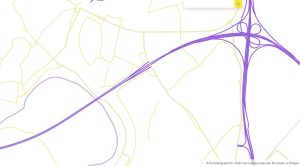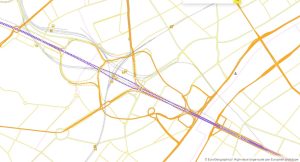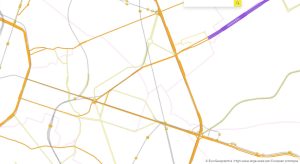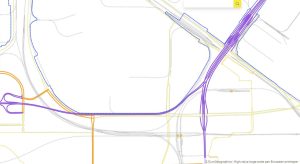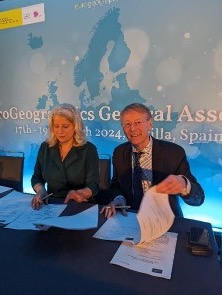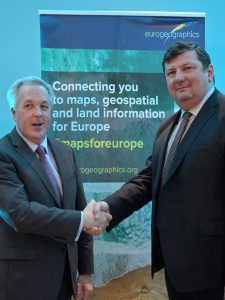Open Maps For Europe 2 (OME2) expands Open Cadastral Map with four new countries
Open Maps For Europe 2 (OME2) has added Greece, Latvia, Luxembourg and Slovakia to the latest update of the Open Cadastral Map.
As a result, 10 countries are now included in the prototype map service for European cadastral data. This compiles and harmonises INSPIRE open data to provide users with an overview of the information available with user-friendly links for direct download from data providers’ national geoportals. 
OME2 is enhancing the Open Cadastral Map prototype, which is available through the Open Maps For Europe interface, and also developing a strategy that will increase the use of European cadastral data by making it more findable and accessible. The project, co-funded by the European Union, is being delivered by a consortium comprising: EuroGeographics; National Geographic Institute, Belgium; National Institute of Geographic and Forest Information, France; Hellenic Cadastre; General Directorate for the Cadastre, Spain; and Cadastre, Land Registry and Mapping Agency, The Netherlands.
Victoria Persson, Project Manager – Data Access and Integration at EuroGeographics, said: “OME2’s vision is that the Open Cadastral Map becomes a single point to access pan-European high-value cadastral data enabling users to easily find authoritative information. To do this, we are developing common processes, guidelines and best practices, aligned to key European and global policies, for integrating data from National Mapping, Cadastral and Land Registration Authorities.”
“The pan-European Cadastral Data Strategy will define stakeholders as well as the technology, processes, resources and best practices required to support the long-term delivery of official high-value data for addresses, cadastral parcels, buildings and administrative units.”
“User needs are at the heart of OME2, and our aim is not only to promote access to high-value data but also its use. We invite all users to provide feedback and to share their case studies. The Project can be contacted through the Open Maps For Europe contact form.”
In addition to Greece, Latvia, Luxembourg and Slovakia, the Open Cadastral Map prototype covers the Czech Republic, Denmark, The Netherlands, Poland, Slovenia and Spain. Machine-readable metadata for the data service is now available on the European Data Portal.
EuroGeographics is an international not-for-profit organisation (AISBL/ IVZW under Belgian Law. BCE registration: 833 607 112) and the membership association for the European National Mapping, Cadastral and Land Registry Authorities.
The OME2 project is co-funded by the European Union. It is being delivered by a consortium comprising: EuroGeographics, the not-for-profit membership association for Europe’s National Mapping, Cadastral and Land Registration Authorities; National Geographic Institute, Belgium; National Institute of Geographic and Forest Information, France; Hellenic Cadastre; General Directorate for the Cadastre, Spain; and Cadastre, Land Registry and Mapping Agency, The Netherlands.
Views and opinions expressed are however those of the author only and do not necessarily reflect those of the European Union or European Commission. Neither the European Union nor the European Commission can be held responsible for them.

